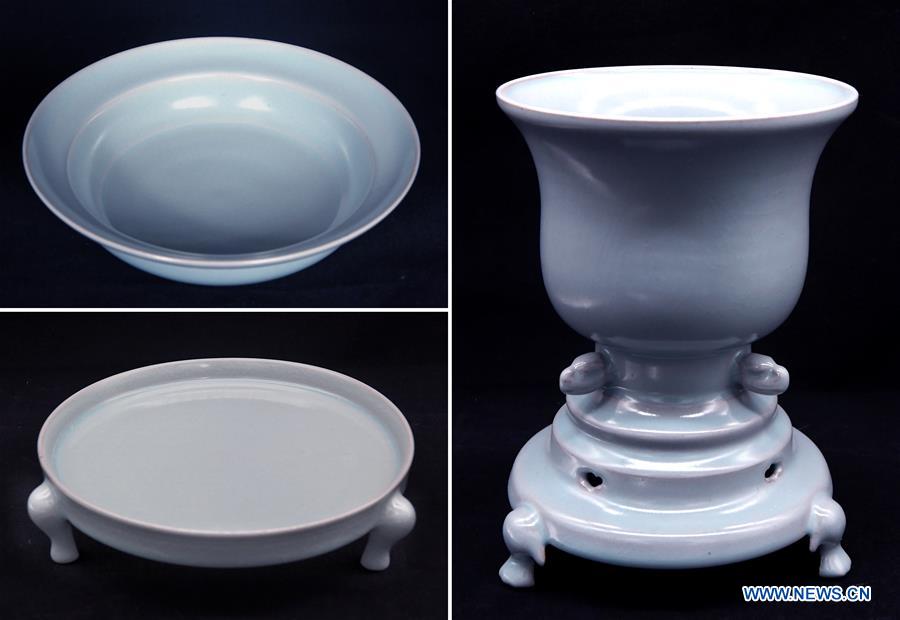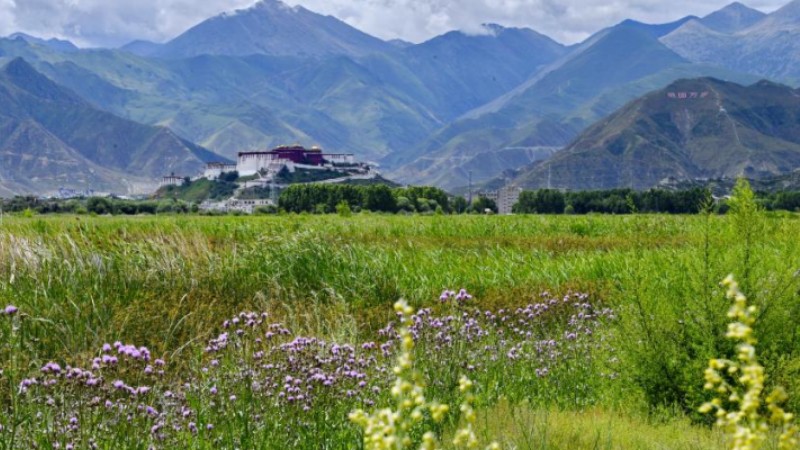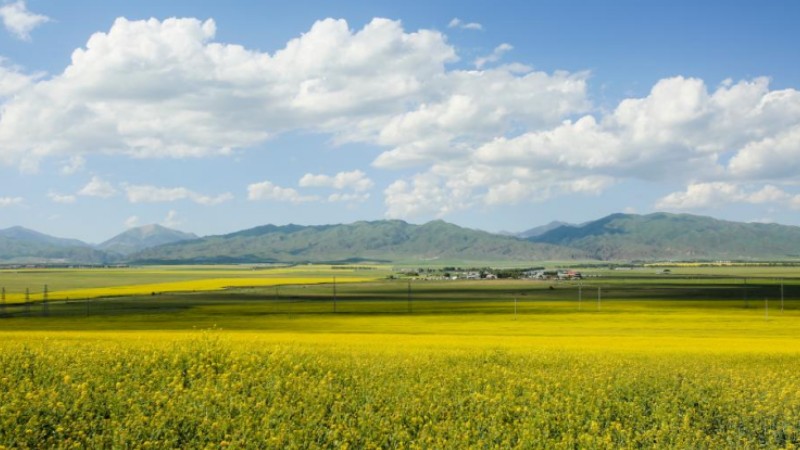Village in C China's Henan gives new lease on life to millennium-old Ru porcelain
Home to the ancient official Ru porcelain kiln of the Song Dynasty (960-1279), Qingliangsi village in Daying township, Baofeng county, central China’s Henan Province has given a new lease on life to Ru porcelain.
With the discovery of the ancient kiln, which was listed as a key cultural relic site under state protection, local villagers have revived the firing skills of Ru porcelain, a national intangible cultural heritage, and engaged in the Ru porcelain industry.

The combination photo shows Ru porcelain works made by Wang Junzi, a Ru porcelain firing craftsman in Qingliangsi village, Baofeng County of central China's Henan Province. (Xinhua/Li An)
In 2019, the village had 12 Ru porcelain companies, one national-level inheritor of Ru porcelain firing skills, and four provincial-level inheritors.
However, some villagers started a "price war" that made competition fierce but didn't improve the overall quality of Ru porcelain ware, which hindered the healthy development of the local Ru porcelain industry, said Wang Xuefeng, Party chief of Qingliangsi village.
With assistance from superior culture and tourism departments, the Party committee in Baofeng county and the county government, Qingliangsi village began trials on setting up provincial-level cooperatives on rural culture, including the Ru porcelain culture cooperative, in September 2020.
The cooperative has implemented a unified system for management, production, sales and marketing, and created a unified Ru porcelain brand, avoiding excessive competition while improving Ru porcelain firing levels and economic benefits in the village, Wang Xuefeng said.
Inheritors of Ru porcelain firing skills in the village took the lead in joining the cooperative and teaching skills to members of the cooperative, thus attracting more villagers to join it.
With funds from the county, the township and the village, the cooperative has enhanced the Ru porcelain firing skills of its members through various means. It has also improved the market competitiveness and output value of the Ru porcelain industry in Qingliangsi village.
Over 10 Ru porcelain companies and workshops from villages like Baishipo and Hanzhuang joined the cooperative.
The number of Ru porcelain companies and workshops in Daying township has increased from 106 to 154, with people working in the industry growing from over 600 to more than 1,500 and the sector's output value soaring from 90 million yuan ($12.5 million) to over 200 million yuan.
The cooperative's development has not only improved villagers' income but also contributed to the inheritance of fine traditional culture, said Wang Daiqiang, Party chief of Baofeng county.
Photos
Related Stories
- An 8-minute guide to making Ding porcelain
- Potter builds porcelain palace
- China's "porcelain capital" facilitates exports for smaller merchants
- Artisans create exquisite miniature worlds on tiny porcelain canvases
- Feature: Keep the fire burning -- HK's oldest porcelain plant passes down timeless beauty
- Mark Pollard: An obsession with China that isn’t going away
Copyright © 2023 People's Daily Online. All Rights Reserved.









